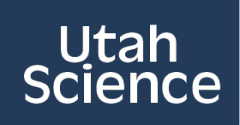Table of contents
1 INTRODUCTION Stanford Cazier
2 INTERNATIONAL PROGRAMS AT USU (1915-1981) N. Keith Roberts USU's commitment to helping less affluent peoples help themselves began in 1915. Over the years. that commitment has led to Increasingly diversified but consistently useful work
6 WHO BENEFITS FROM INTERNATIONAL PROGRAMS? E. Boyd Wennergren Altruism has a noble sound to It. but practical considerations often keep us from embracing the philosophy. Economical data. however. prove that when we go to less developed countries to fight world hunger. we gain measurable benefits for ourselves
10 DEVELOPMENT ECONOMICS N. Keith Roberts and Morris D. Whitaker Valid. long-range cost/benefit analyses are basic to agricultural planning. USU economists have produced notable effects on less developed countries by both doing the analytical work and training their In-country counterparts In the techniques
16 PARTNERS IN EDUCATION: USU AND BOLIVIA Dale J. Harding Give a person hope and a viable way to pursue It’s realization-and you've affected more lives than Just that one. USU educators have had that kind of far-reaching Impact abroad. School and library buildings have been constructed. books produced. and teachers taught. Some direct effects are easily seen. The less direct may persist through generations
22 CIDIAT: CREATING A WORKING CENTER Bruce H. Anderson A remarkable cooperative effort produced a method for combining on-the-job and classroom experiences for policymakers. managers. and technicians The full effects on food production that have been realized because of the CIDIAT-initiated Improvements in land and water management may never be known
26 ENRICHED SOILS: RICHER HARVESTS D. W. James Without soils no crops could be produced In a standard fashion But each soil has unique properties that must be identified and manipulated If plant growth is to be optimal. USU soil scientists have worked with both scientists and farmers in less developed countries to help them learn the necessary techniques.
30 INCREASING CROP PRODUCTION Keith R. Allred No matter where he or she is living. every farmer wants to get more from the land. Much of our crop-related work in less developed countries has directly helped their farmers achieve that objective. At the same time. we have gained access to plant materials that Will eventually Increase the returns of our own farmers.
36 IRRIGATION: BASE FOR DEVELOPMENT A. A. Bishop, G. H. Hargreaves, and E. C. Olsen II I Proper application and management of precious water can make the difference between a harvest and a crop failure As they have helped solve irrigation problems around the world. USU Investigators have often found answers to Similar difficulties close to home.
40 INTERNATIONAL FEED SYSTEMS L. E. Harris, L. C. Kearl, and P. V. Fonnesbeck To produce well. livestock must eat well. An International effort is being made to obtain. standardize. and computerize data about locally popular feedstuffs In terms of their nutritive values and names.
44 RANGELANDS: A FRONTIER IN DEVELOPMENT B. E. Norton Many less developed countries have extensive acreages of land that is best used as range Too often. however. the land and the animals that graze It function far below their potential productivity By helping define what needs to be done to correct specific situations. range scientists are actively combating world hunger.
48 ANIMAL PRODUCTION IN DEVELOPING COUNTRIES Warren C. Foote In many of the less-developed. protein-starved countries. sheep are a preferred source of meat. USU personnel are making Vital contributions to programs designed to identify and optimize the productivity of breeds of sheep especially suited to particular environments throughout the world.
54 BEYOND TECHNOLOGICAL BAND AIDS Derrick J. Thorn The research may be With plants. animals. water. soil-but the ultimate goal is always to help individuals better their lives. To be effective in this regard requires attention to and In-depth knowledge of those individuals. their traditions. values. and dreams. USU specialists in sociology, geography. anthropology, and similar disciplines are making contributions toward satisfying that need.
60 CONCLUSION
Recommended Citation
(1981)
"Utah Science Vol. 42 No. 1, Spring 1981,"
Utah Science: Vol. 42:
No.
1, Article 1.
Available at:
https://digitalcommons.usu.edu/utscience/vol42/iss1/1

